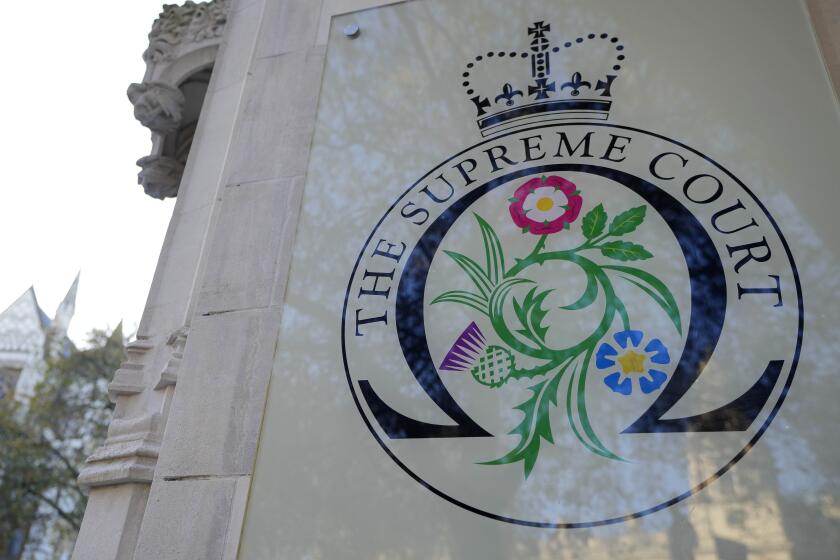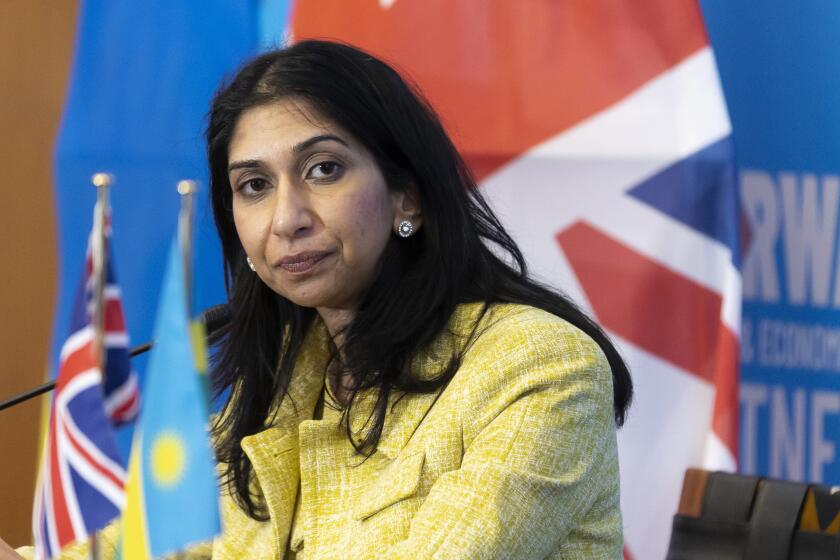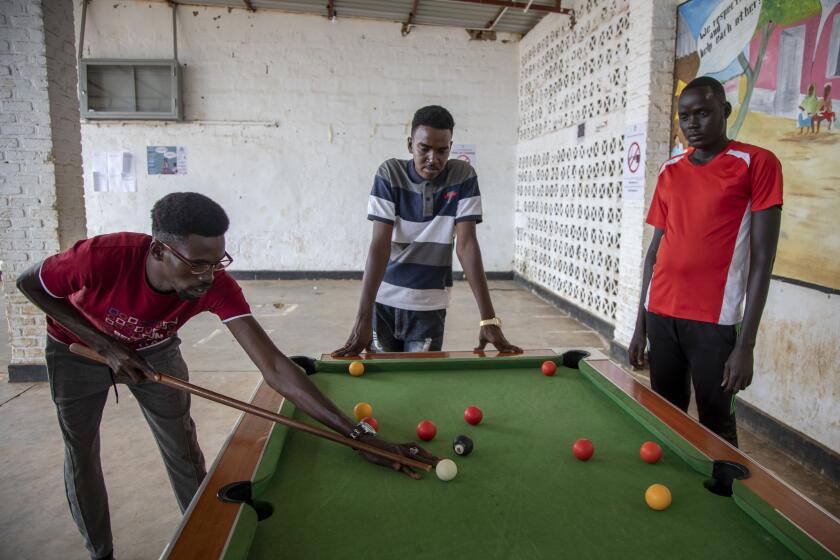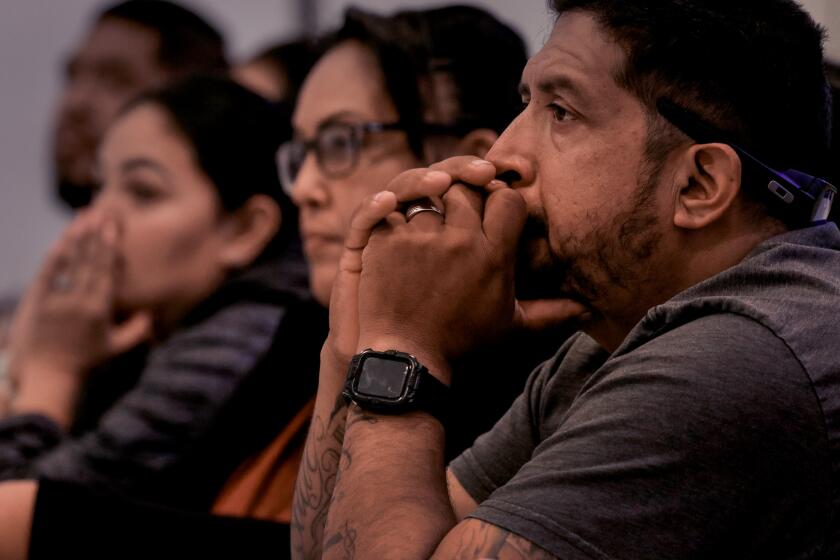Britain and Rwanda strike a new treaty in effort to revive asylum plan blocked by U.K. courts
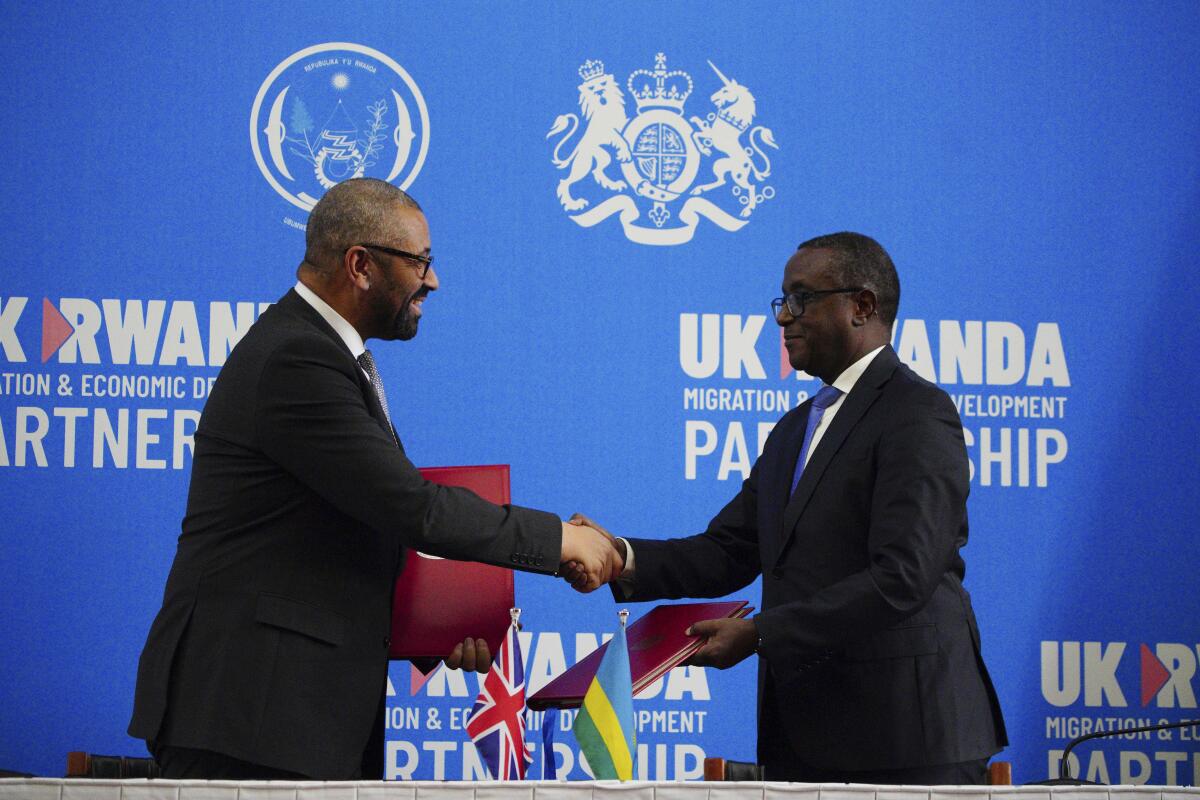
LONDON — The governments of Britain and Rwanda signed a treaty on Tuesday that aims to revive a plan to send asylum-seekers to the East African country that has been blocked by U.K. courts.
British Home Secretary James Cleverly said the legally binding agreement signed with Rwanda Foreign Minister Vincent Biruta would “address all the issues” raised by the U.K. Supreme Court when it ruled last month that the controversial policy was unlawful.
The court said the plan was illegal because Rwanda is not a safe country for refugees. Britain’s top court said asylum-seekers faced “a real risk of ill-treatment” and could be returned by Rwanda to the home countries they had fled.
The treaty includes a promise by Rwanda not to send asylum-seekers back to their home countries, even if their applications are refused.
Britain’s highest court has ruled that the Conservative government’s contentious plan to send some migrants on a one-way trip to Rwanda is illegal.
“We feel very strongly that this treaty addresses all of the issues raised by their lordships in the Supreme Court and we have worked very closely with our Rwandan partners to ensure that it does so,” Cleverly said in Kigali, the Rwandan capital.
The Rwanda plan is central to the Conservative government’s self-imposed goal of stopping unauthorized asylum-seekers arriving on small boats across the English Channel.
Though Britain receives fewer asylum applications than countries such as Italy, France or Germany, thousands of migrants from around the world travel to northern France each year in hopes of crossing the English Channel. More than 27,300 have done that so far this year.
Britain and Rwanda struck a deal in April 2022 for some migrants who cross the channel to be sent to Rwanda, where their asylum claims would be processed and, if successful, they would stay. The U.K. government argues that the deportations will discourage others from making the risky sea crossing and break the business model of people-smuggling gangs.
A British appeals court has ruled that a government plan to send asylum-seekers to Rwanda in an attempt to deter unauthorized migration is unlawful.
Critics say it is both unethical and unworkable to send migrants to a country 4,000 miles away, with no chance of ever settling in the U.K.
Britain has already paid Rwanda at least 140 million pounds ($177 million) under the agreement, but no one has yet been sent there amid the legal challenges.
Cleverly said Rwanda had not received “any funding linked to the signing of this treaty,” but did not rule out paying more to help the African country meet its new commitments. The treaty says only that the sides shall make “financial arrangements in support of the relocation of individuals” under the deal.
For years, human rights groups have accused Rwanda’s government of cracking down on perceived dissent and keeping tight control on many aspects of life, from jailing critics to keeping homeless people off the streets of Kigali. The government denies it.
Biruta said Rwanda had been unfairly criticized “by international organizations, by the media, by courts.”
Refugees who had sought asylum in Britain are being sent to Rwanda. But new arrivals say life is hard there and that food and work are scarce.
“It is not helpful for all of us to criticize a country like Rwanda, which is contributing to a solution while we are not even addressing the root causes … which produce those refugees,” he told reporters in Kigali.
The British government says the new treaty will give it the basis to pass a law declaring Rwanda a safe destination.
That legislation is due to be published within days, but will likely take weeks to be approved by Parliament — and the Rwanda plan could still be subject to further legal challenges.
Prime Minister Rishi Sunak has made “stop the boats” one of his key pledges ahead of a national election that is due next year. He hopes showing progress can help the party close a big polling gap with the Labour opposition.
Cleverly said he couldn’t guarantee any deportation flights to Rwanda before the next election. But, he said: “I can see no reason why that should not happen.”
More to Read
Sign up for Essential California
The most important California stories and recommendations in your inbox every morning.
You may occasionally receive promotional content from the Los Angeles Times.
